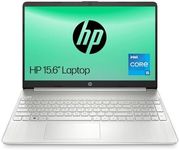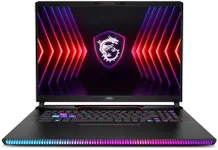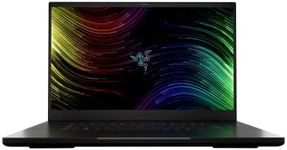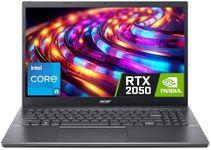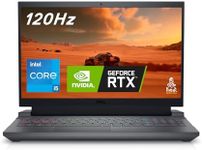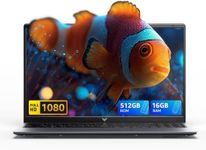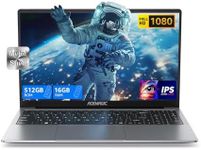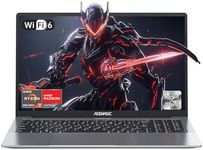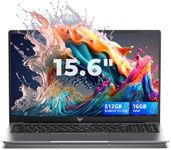Buying Guide for the Best Laptops For Djs
When choosing a laptop for DJing, it's important to focus on the performance and features that will support your music mixing and production needs. DJs require laptops that can handle audio software, multiple tracks, and sometimes even video mixing. The right laptop should be reliable, portable, and powerful enough to ensure smooth operation during live performances or studio sessions. Consider the following key specifications to find the best fit for your DJing needs.Processor (CPU)The processor is the brain of your laptop and is crucial for running DJ software smoothly. A powerful CPU ensures that your laptop can handle multiple tasks simultaneously, such as running DJ software, playing tracks, and managing effects. For DJing, a multi-core processor like an Intel i5 or i7, or an AMD Ryzen 5 or 7, is recommended. These processors provide a good balance between performance and power consumption. If you plan to use more demanding software or perform complex tasks, consider opting for a higher-end processor.
RAMRAM, or Random Access Memory, is important for multitasking and running DJ software efficiently. It temporarily stores data that your laptop needs to access quickly. For DJing, at least 8GB of RAM is recommended to ensure smooth performance, especially when running multiple applications or plugins. If you plan to use more resource-intensive software or work with large audio files, consider upgrading to 16GB or more to avoid any lag or performance issues.
StorageStorage determines how much data you can keep on your laptop, including music files, software, and projects. Solid State Drives (SSDs) are preferred over Hard Disk Drives (HDDs) because they are faster and more reliable, which is crucial for quick access to your music library and software. A minimum of 256GB SSD is recommended for DJs, but if you have a large music collection or plan to store video files, consider 512GB or more. External storage options can also be considered for additional space.
PortabilityPortability is important for DJs who travel frequently or perform at various venues. A lightweight and compact laptop is easier to carry and set up. Look for laptops with a screen size between 13 to 15 inches, as they offer a good balance between portability and usability. Consider the laptop's weight and battery life as well, especially if you need to perform in locations without easy access to power outlets.
ConnectivityConnectivity options are crucial for DJs who need to connect various peripherals like controllers, mixers, and external drives. Ensure the laptop has multiple USB ports, preferably USB-C for faster data transfer. An HDMI port can be useful for video output if you plan to incorporate visuals into your performance. Additionally, a headphone jack and reliable Wi-Fi connectivity are essential for seamless operation.
DisplayThe display quality is important for visibility and ease of use during performances. A high-resolution screen with good brightness and color accuracy will make it easier to navigate your DJ software and manage tracks. A Full HD (1920x1080) resolution is generally sufficient, but if you work with video or need more screen real estate, consider a higher resolution. Touchscreen displays can also be beneficial for intuitive control, but they are not essential.
Build QualityBuild quality is important for durability, especially if you frequently travel or perform in different environments. Look for laptops with a sturdy build, preferably with a metal chassis, to withstand the rigors of transportation and live performances. A well-built laptop will also have a better keyboard and trackpad, which are important for ease of use during long sessions.
